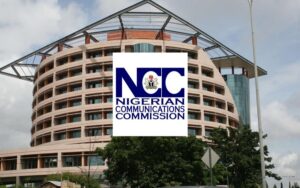Expectations of Nigerians from new ministers
After waiting for almost four months the President Bola Ahmed Tinubu finally inaugurated his administrative cabinet (the Ministers) who have resumed office at their various Ministries. The ministers are coming at a critical period that the Economic situation is in shambles witnessed by high rate of inflation, rise in transport fares, Insecurity and unbearable living standard by the masses.
The ministers have rolled out their agenda or mission policies to hit the ground running by aligning with President’s roapmap. However, we are at a critical point that requires urgent execution of projects especially in the financial and humanitarian sectors to ameliorate hardship in the country with a short term plan.
Figures made available by the National Bureau of Statistics (NBS) indicate that133 million Nigerians live in multidimensional Poverty. This data is bigger than the population of most African countries and even the United Kingdom which is 67 million and several European countries. It also serves as a stark reminder of the pressing need for effective policies and initiatives to uplift millions from destitution.
It is indisputable that Nigeria stands on the precipice of change. The challenges at hand are grave and complex, demanding solutions that are not just politically motivated but also technically sound. For the nation to truly move forward, it is crucial that the ministers appointed possess the necessary competence and vision to navigate these critical issues.
While some appointments raise eyebrows, such as assigning former governors to the defense ministry despite the security challenges in their respective states especially Zamfara which is regarded as the epicenter of banditry in the country, there are also bright spots.
The appointment of the Minister of State for Gas Resources and Marine, Blue Economy aligns with Nigeria’s potential as a global gas reservoir.
It is instructive to note that Nigeria boasts substantial gas reserves, yet harnessing these reserves has lagged behind the utilisation of its oil reserves. A strategic focus on this sector could undoubtedly diversify Nigeria’s revenue streams.
Similarly, Nigeria’s blue economy potential is largely untapped despite its vast coastline and maritime area. With rich resources and a huge population dependent on coastal regions, the blue economy represents an enormous opportunity for economic growth and job creation.
Indeed, leveraging these resources would not only reduce dependence on crude oil but also contribute to sustainable development and environmental protection.
As the new ministers assume their roles, the expectation is for them to hit the ground running.
In the considered opinion of this newspaper, Nigeria cannot afford the luxury of time, and the gravity of the challenges necessitates immediate action. Rather than indulging in political maneuvering, the ministers must prioritise the tasks at hand.
Our perspective is that President Tinubu must set one-year targets for the ministers performance indices and anyone found unfruitful should be sacked immediately as there is no time for usual business. Mr. President’s cabinet shouldn’t witness same Greenleaf given to ministers like that of his predecessor. The country needs a results-driven approach that translates into meaningful changes in the lives of its citizens. Nigeria’s future is at a crossroads, demanding nothing short of visionary and transformative leadership. The challenges of poverty and security are monumental, requiring a blend of political acumen and technical expertise to navigate. The recent ministerial appointments, though met with mixed reactions, provide an opportunity to reshape the nation’s trajectory.
Citizens, who have endured much, deserve nothing less than an all-out effort from their newly appointed leaders. Accountability, transparency, and a sense of urgency will be the guiding principles on this journey towards a more prosperous Nigeria.
All Ministerial programmes and policy must be tailored towards solving the immediate problems of hunger, insecurity challenges, poor health delivery, epileptic power supply, jobs creation for youths, digitalization of the Economy and stabilising our the forex market.




